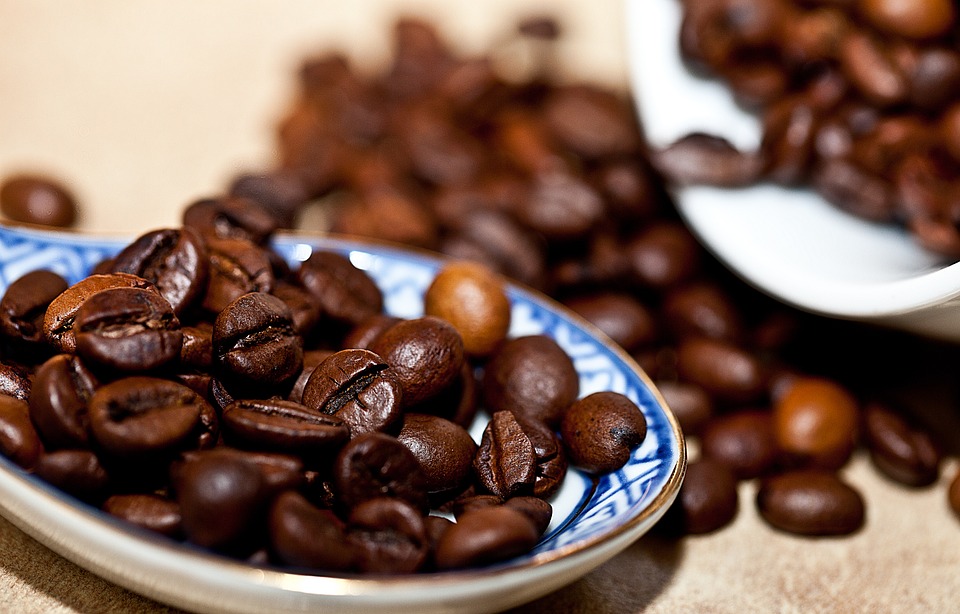Gluten-free coffee: what about coffee with celiac disease? (+ interesting variants)

Coffee is a very popular drink obtained by roasting the ground seeds of the coffee plant. This delicious life-enhancer has won fans all over the world with its taste, aroma and stimulating effects. But what if you are a celiac? Can celiacs drink coffee?
Article content
Coffee
As already mentioned, coffee is obtained by roasting the beans of the coffee plant. However, there are several types of coffee depending on the type of beans, the way they are roasted, ground or prepared.
The most basic division is by variety of coffee plant:
- Arabica coffee - obtained from the seeds of the Arabica coffee tree
- robusta coffee - obtained from the seeds of the robusta coffee plant
The most common type of coffee in our country is arabica. It can also be used in combination with a certain proportion of robusta. But the more robusta a coffee contains, the more bitter or astringent its taste (e.g. in the case of green coffees).
As such, coffee beans do not contain gluten, so from this point of view coffee is gluten-free.

Whether the coffee is in the form of roasted beans or ground coffee (instant soluble coffee), as long as the packaging states that it is 100% Arabica, it should not pose any risk to a coeliac in terms of a gluten-free diet.
However, you should be wary of the various instant blends such as '2 in 1', '3 in 1' or the various flavoured coffees that are a big hit at the moment.
In many cases, these coffees or blends are enriched with many additives (flavourings) that may contain gluten.
It is therefore essential to check the ingredients on the coffee label or check directly with the manufacturer. Only then can you be 100% sure that the coffee is really safe for you.
In cafés, it is also advisable to check with the staff whether the coffee is made from 100% Arabica. Smaller cafés or pubs often offer coffee from unknown brands which may or may not contain coffee grounds or other ingredients unsuitable for coeliacs.
In this regard, coffees from vending machines or boxed iced coffees are not recommended for celiacs.
Coffees and coffee blends
Another category of coffees are the aforementioned coffees and coffee blends based on or containing cereals. These are usually cereals such as barley, rye, chicory, wheat bran and many others.
For consumers, coffee cereals are a suitable alternative to coffee for a number of reasons:
- low price - compared to regular 100% coffee, the price of coffee beans is noticeably lower
- high fibre content - the fibre contained in the cereal supports digestion and thus has a beneficial effect on the human body
- absence of caffeine - coffee beans do not contain caffeine, so consumers can drink them at any time and in almost unlimited quantities, and they are also suitable for children
Celiacs, however, will not be too happy with the above arguments and should definitely avoid such types of coffee drinks!
However, there are exceptions. There are coffee products that are made exclusively from authorised raw materials/grains. For example, coffee made from chicory.
As the nature of its composition suggests, chicory is neither gluten-free nor caffeine-free, and can therefore be drunk at any time and in any quantity. However, it has a very specific taste, so it is recommended to sweeten it with sugar or honey, or cinnamon or milk. This will make it taste a little more delicate and balanced.
There really are no limits to the creativity of your taste buds.
Chicory-based coffees can also be enriched with various types of herbs, making them a very healthy alternative to coffee indeed. These herbs are intended to support various components of the human body (nervous system, digestive system...) and thus have a positive effect on various human activities (sleep, learning, physical activity or, for many women, the coveted weight loss).
Related










